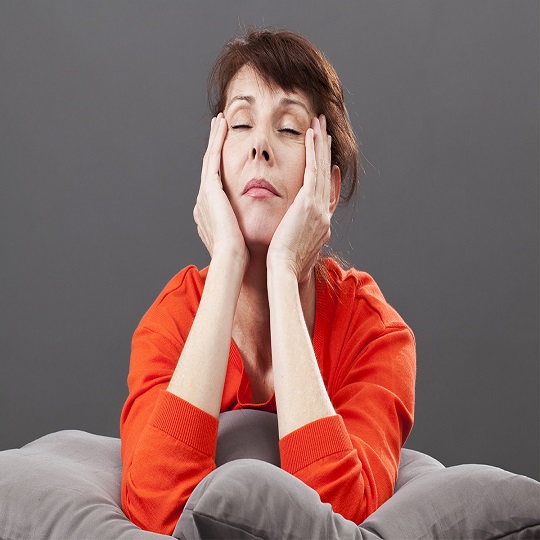Menopause Treatment
Menopause Treatment is known as a natural biological in women’s lives and usually begins between the ages of 45-55. This period is the change of the ovaries and the cessation of progesterone production, along with the end of menstrual periods. With the onset of menopause, women may experience various physical and emotional changes. Menopause, hot flashes, night walks, sleep disorders, mood swings, normal dryness and bone density decreases are listed in the pictures. During this process, women need to take some important steps to protect their health and improve their quality of life. This classic will focus on the basic recommendations and treatment options that women in menopause should follow in order to live a healthy and regular life.
What Should a Woman Going Through Menopause Do?
Regular Doctor’s Check-ups: Menopause Treatment | A woman who has entered menopause should go to her doctor regularly. These check-ups monitor important factors such as hormone levels, bone density, and heart health.
Healthy Nutrition: Menopause Treatment | A balanced and healthy diet is important during menopause. A diet that includes nutrients such as calcium, vitamin D, fiber, and antioxidants protects bone health and supports overall health.
Regular Exercise: Menopause Treatment | Regular exercise during menopause helps with weight control, protects bone health, helps balance mood, and improves overall health.
Stress Management: Menopause Treatment | Stress levels may increase due to the hormonal changes experienced during menopause. Stress management techniques such as yoga, meditation, and deep breathing exercises can be applied.
Avoiding Smoking and Alcohol Consumption: Smoking and excessive alcohol consumption can increase health problems after menopause. Therefore, these habits should be avoided.
Asking Questions About Hormonal Changes: Menopause Treatment | Hormonal changes occur during menopause and these can cause some symptoms. There is a misconception that menopause is a natural result of aging and that every woman should accept the difficulties during this period and not seek solutions. However, although this is a natural process, there are many beneficial, less risky hormonal and non-hormonal treatment options available today. Women should share their concerns and concerns about their symptoms with their doctors and discuss current treatment options, benefits and risks in detail.
What Medications Are Used for Menopause?
Hormone Replacement Therapy (HRT): This is the most commonly used treatment to relieve menopause symptoms. It contains hormones such as estrogen and progestin. These drugs can be used in tablet, skin patch, gel or cream form.
Estrogen Only Therapy (ET): It is recommended for women who have had their uterus surgically removed. Antidepressants:
Selective Serotonin Reuptake Inhibitors (SSRIs): Low doses of some antidepressants are used to relieve menopause symptoms such as hot flashes and insomnia. For example, drugs such as fluoxetine and sertraline are in this category.
Osteoporosis Drugs:
Bisphosphonates: Used to prevent bone loss. It is especially preferred to reduce the risk of postmenopausal osteoporosis. Drugs such as alendronate and risedronate fall into this category.
Selective Estrogen Receptor Modulators (SERMs): They mimic the bone-protective effects of estrogen. Raloxifene is an example of this category.
Calcitonin: Used to strengthen bones and reduce the risk of fractures.
Natural Supplements and Herbal Remedies
Homeopathic treatments have been observed to be beneficial in relieving some menopausal symptoms, with diluted substances obtained from some plants and minerals. Although scientific data is not sufficient, you can try these treatment options by discussing them with your doctor and making a possible benefit/risk assessment.
In addition, since many herbal drugs can interact with different drugs, it is important to inform your doctor if you are also taking other drugs.
Soy-containing supplements such as isoflavones can help relieve menopausal symptoms. However, it should not be forgotten that these are also phytoestrogens, i.e. plant estrogens, and carry some risks.
Calcarea Carbonica, obtained from oyster shells, is recommended for night sweats, abnormal cell growth in cysts, weight gain, sleep disorders, painful sexual intercourse, fatigue and anxiety.
There are some studies showing that sage leaf extract is effective in reducing the severity and frequency of hot flashes.
Black cohosh is a supplement that can be used for hot flashes.
St. John’s Wort is preferred for treating low mood. There are a few studies showing that it is effective for hot flashes when used with black cohosh. However, women should not use it because it can reduce the effect of the drug tamoxifen used for breast cancer treatment.
Vaginal Hormones are used to relieve vaginal dryness and pain during intercourse. Vaginal estrogen creams, rings or tablets are in this category.
Mesotherapy applications, substances such as hyaluronic acid, PRP, fat fillers (nanofat, stromal vascular fraction) applied to the vagina under local anesthesia in the clinic, provide benefits for vaginal dryness problems of women in the menopausal process with effects such as increasing vaginal collagen, formation of new vessels, and increasing the water retention capacity of the mucosa.
The use of energy-based devices, vaginal laser, HIFU, radiofrequency and similar devices here aims to increase collagen production with a defect in the tissue and to provide cellular renewal.
Menopause Treatment | In addition, different approaches such as reflexology, aromatherapy, acupuncture, relaxation techniques, mindfulness, meditation, and breathing therapy can help you cope with your complaints during the menopausal process.
Which medication can be used to relieve menopause symptoms depends on the symptoms and their severity, the woman’s medical history, and her preferences.






